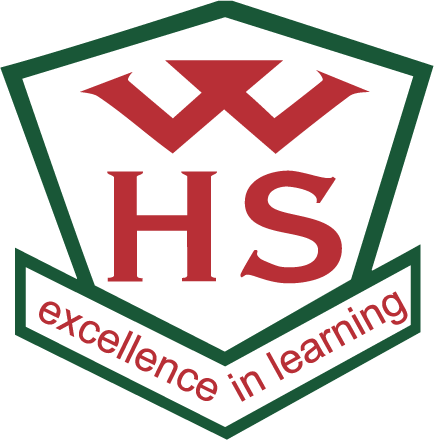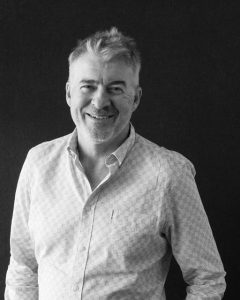This has been adapted from the Principal’s speech delivered at Senior Prizegiving on 4 November.
At the end of last term I reflected on success and the many people involved to create that success. My thoughts were prompted by a lovely story that arrived in my inbox a couple of weeks ago.
The email referenced one of our refugee students who has been with us since mid 2017. On arrival, he was placed in Year 11, although a little old for that year, and his academic programme was based predominantly around English language learning, as he had grown up speaking Arabic as his first language. By the end of 2018 he had achieved level 1 NCEA and he has already achieved level 2 NCEA this year. However, at this stage he looks unlikely to achieve level 3 NCEA this year in Year 13. When we look at statistics in relation to NCEA, he would be in the group that hasn’t achieved the qualification in the year he was supposed to. So that is not considered a success. But to tell you a little more about him, he has been studying this year in one of our transition classes which helps students to take steps into further training and employment through pathways other than university entrance. Through this transition class he undertook a Gateway placement (which is essentially work experience with NCEA credits attached) and the outcome of this placement is that he has been offered paid employment by Ray Hartley Motors over the summer holidays with a possible outcome of an apprenticeship in the future. Clearly, what he has done is quite astonishing in just over two years. It is success by any definition and the idea of success is worthy of exploring a bit further.
When ERO visited us at the start of 2018, we talked to them about what success looks like at Wellington High School. Our point, and it’s indicated by my previous example, was that success is very personal. For one student this may involve getting excellences across all of their subjects, and we have seen students like that tonight, but for another it may involve attending school regularly despite circumstances that make this a challenge. One of the ERO reviewers said to me, at the time, that success for her son was him being able to speak on the marae.
At the end of the review, ERO stated that “the school’s broad curriculum provides many opportunities for students to participate and celebrate success in a wide range of academic, sporting, cultural and leadership activities.” And they talked about Pathways, Secondary-Tertiary programmes, Gateway, The Secondary Tertiary Alignment Resource (STAR) and Industry Training Organisation courses, all providing options for senior students to receive sound career advice and guidance.
Further, we recognise that for a student to have success, whatever that looks like, they need to be secure in themself, their culture, and their identity and they need to be able to develop respectful and successful relationships with their peers and adults. We also understand the role we as teachers play in that growth. A recent ministry publication said the following:
“Young people spend close to half their waking hours in school and inevitably the quality of experiences with teachers and peers in that setting will affect emotional wellbeing.” (p42, Te Pakiaka Tangata – Stengthening Student Wellbeing for Success)
If students feel welcome and included, if they feel safe, if they can feel connected, if they can laugh and enjoy their time with us and with each other, then they will have success.
For my own children, I feel proud of them when they do well at school or at university. I also feel proud of them when they are able to successfully navigate and negotiate a relationship. I feel proud when we visit my family or my wife’s family and they interact well and they and everyone has a good time. I also feel proud when I see them successfully balancing a range of commitments in their lives: jobs, sport, music, study but still having quality time with me and my wife. My success criteria for them is wide. And so it is also wide when we talk about success here at Wellington High School.
When our Year 9 students start each year, I talk about WERO. As you probably know already, WERO means challenge and the letters of WERO stand for Whānau, Excellence, Respect and Ora which are our cornerstone priorities.
If we examine WERO as a measure of success, we are saying that we want students to be connected to whānau – that is, we say that family and community matter and being a part of that family and community and negotiating the relationships to do that is a measure of success. Further, we want our students / children to be seeking personal excellence – we want them trying to be the best they can be. We value respectful relationships and we want that to be at the heart of what they do. That means they work successfully with their peers, their teachers, their parents and whānau. Finally we value Ora – that emotional and physical wellbeing that allows them to find work-life balance. When each of these are in place our students will find success.
So the Wellington High brand of success is build on these foundational priorities, it’s multi-faceted and it’s a deep part of our history.
I am going to return now to quoting one of my predecessors again – Turoa Royal, who was the Principal between 1978 and 1985. I say again because I have used this quote a number of times before. When talking about success criteria for students and what would be the most important factors for students to carry with them into the future, he said:
Firstly, if nothing else, pupils should leave the school with a sense of self-worth, a sense of self-esteem, and a sense of high expectations that life has beauty, and of truth. [Ralph Waldo] Emerson’s truism is worth quoting:
“Though we travel the world over to find the beautiful, we must carry it with us or we will find it not.”
Secondly, whatever we teach, pupils should have the ability and skills to relate to others in a cordial, friendly and compassionate relationship.
“Ko te mea hui – ko te aroha”
The most important thing – is love and compassion
Thirdly, students should have the widest and happiest experiences in schools so that on leaving, learning is seen as a continuing and enjoyable experience.
Fourthly, to be able to analyse problems, no matter how complex, so that if career tracks are changing more frequently, they are able to make wise choices.
Fifthly, students should, through school practices be concerned for people and for mother earth. Mother earth is our past and our future.”
Although this was said over thirty years ago, what is there is very strongly linked to our current priorities in WERO.
Valuing the relationships we have with ourselves, others and planet earth is embedded with whānau, excellence, respect and ora. Our role as teachers and parents is to help our students navigate their own pathway to success.
‘Tangata ako ana i te kāenga, te tūranga ki te marae, tau ana’
A person nurtured in the community contributes strongly to society.

